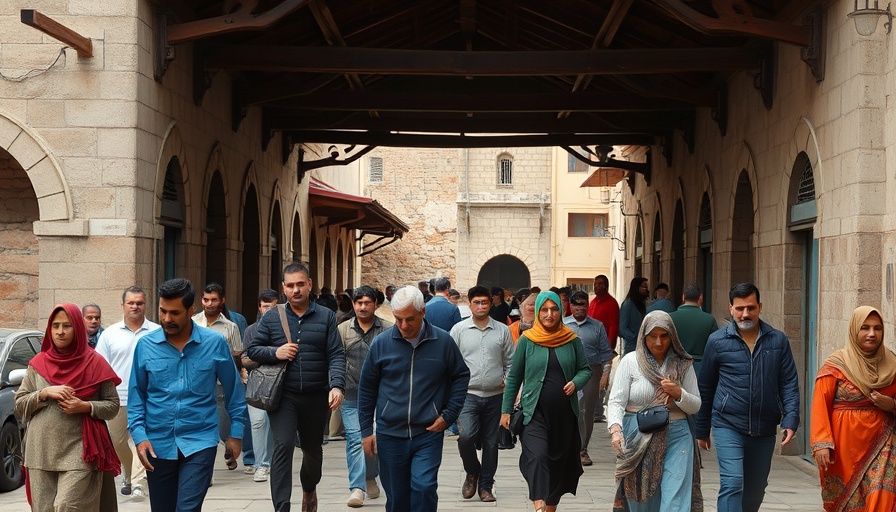
Exploring the Cultural Divide in Modern Damascus
In the timeless streets of Damascus, once known for its vibrant nightlife and secular freedoms, a stark cultural divide is emerging. As the power of the Islamist government takes hold, the celebrated social tapestry of urban life faces unprecedented changes. Historically, the medieval city thrived on a blend of cosmopolitan influences—embracing music, dance, and a variety of culinary delights. Yet, under the new regime, marked by the ascension of President Ahmed al-Shara, this legacy is at risk.
What the Shift Means for Secular Syrians
For many secular Syrians, including religious minorities and left-leaning Muslims, the recent political transformation in Syria has provoked deep anxiety. Nivine Torossian, co-owner of Tiki Bar, captures this sentiment perfectly: “What are we now? Afghanistan?” Her words echo the fears of many who enjoyed the freedoms of the past but are now facing new and unpredictable societal norms. The once unchained nightlife has been shadowed by a conservative atmosphere, where the fear of losing personal freedoms looms large.
The Historical Context: From Secular Rulers to Religious Governance
The Assad regime, while oppressive, allowed a certain degree of secularism to flourish in urban centers like Damascus. This facet of Syrian identity provided a refuge for many who preferred a more liberal lifestyle. Yet, as new Islamist leaders gain authority, historical precedents of governance reveal a tendency towards more conservative social regulations. The transition from Assad’s rule to the hands of former rebels, some once allied with extremist factions, marks a pivotal moment for Syrian society.
Social Connections: Navigating New Norms
As you wander through the ancient alleyways of Damascus, a palpable tension exists between tradition and modernity. Cafes that once buzzed with laughter and hosted live music now face restrictions. Rural Idlib’s conservative governance pours into the capital, reshaping urban habits and stifling what was once a rich cultural exchange. Both secular residents and devoutly religious populations find themselves navigating an unfamiliar new social terrain, where the lines of acceptance are still being drawn.
Fear of Extremism: Concern for Future Generations
The core of the tension in Damascus is the fear of extremism that may seep deeper into everyday life. While the new government claims moderation, there remains a widespread skepticism of the intent behind various laws that aim to 'protect' social norms. Secular residents worry these changes signal not only a change in governance but a drastic cultural shift that could redefine what it means to be Syrian in the years to come.
Contrasting Perspectives: A Nation at a Crossroads
This clash between secularism and conservatism in Damascus exemplifies broader trends impacting Middle Eastern societies. Observers argue that the outcomes of these tensions will have repercussions that extend beyond Syria’s borders, potentially altering the balance between progressive and regressive ideals in the region.
Conclusion: Embracing Dialogue in Divisive Times
As Damascus navigates this turbulent shift, the importance of dialogue among diverse communities cannot be understated. While past freedoms may be challenged, it is through conversation, understanding, and mutual respect that the people of Syria can work towards a future that honors their rich cultural heritage without retreating into the shadows of repression.
This complex landscape, where ancient history meets modern strife, underscores the diverse narratives that shape the identity of Syrian society. While clashing visions continue to play out, the resilience and adaptability of Damascenes may yet redefine their future.
 Add Row
Add Row  Add
Add 




Write A Comment